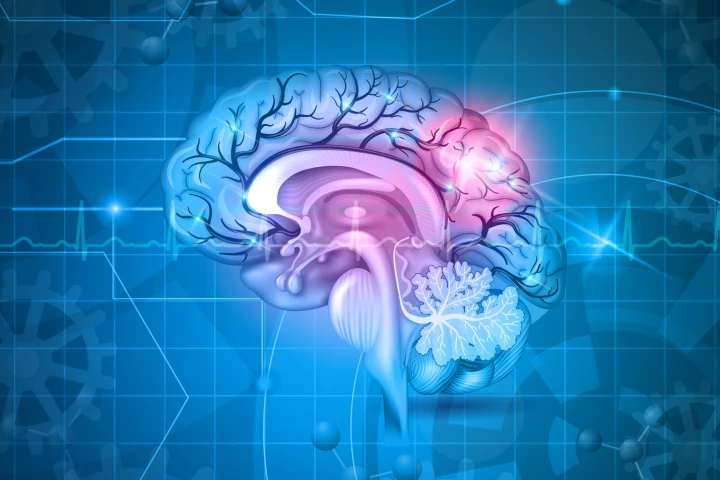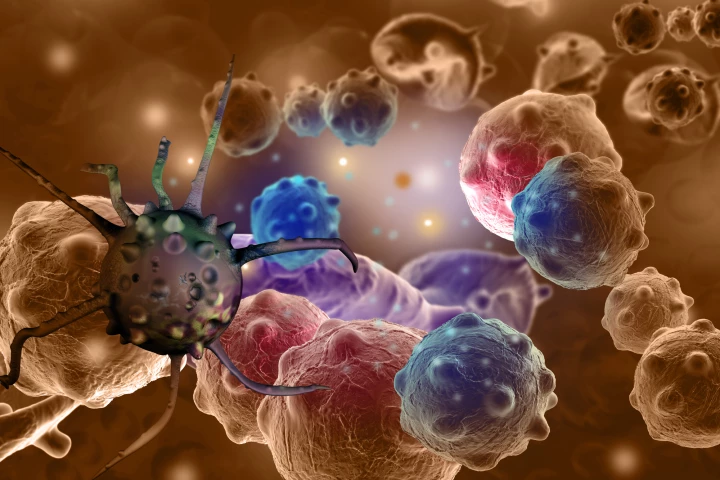Blood-brain barrier
-
Scientists in Korea have turned their attention to the effects of microplastics on mammals by exploring the threat these particles pose to mouse brains and human cells, where they were found to act as toxic substances.
-
Researchers have developed microbots made of stem cells that can be delivered through the nose into the brain. These “Cellbots,” which bypass the blood-brain barrier, could one day be used to treat brain cancers and neurodegenerative diseases.
-
Glioblastoma is a brain cancer that can be aggressive and, unfortunately, tricky to diagnose without a biopsy. But a new noninvasive method, tested in mice and pigs, could one day diagnose the disease with ultrasound pulses and a basic blood test.
-
A new study has explored how the blood-brain barrier might be shored up through the use of an existing anti-cancer drug, with the authors demonstrating some promising results around reversing cognitive decline in mice.
-
A new molecule may help reduce side effects in a drug that could treat alcohol use disorder. Essentially, the molecule disarms the drug in most of the body, but can’t cross the blood-brain barrier, letting the drug get to work in the brain only.
-
A team in the UK has found new success using an experimental approach to tackle Alzheimer's, demonstrating how metal-based molecules can be combined with ultrasound and microbubbles to prevent the build up of toxic brain plaques.
-
Getting traditionally administered drugs into the brain can be challenging, due to the body's protective blood-brain barrier. There may be new hope, however, in the form of a patch that gets shoved up the patient's nose.
-
Getting drugs into the brain is no easy feat, but the nose is one of the most direct routes. Now, UK researchers have developed a nasal spray hydrogel that lines the tissue in the nose to deliver a common Parkinson’s drug straight to the brain.
-
Research into a rare type of dementia has uncovered a genetic mutation that results in dysfunctional white blood cells and a breakdown of the blood-brain barrier, a mechanism that may play a role in common types of dementia such as Alzheimer's.
-
A new particle that borrows chemical passports from neurotransmitters to slip through the blood-brain barrier could open up new avenues of treatment, with the technique showing promise as a way of tackling Alzheimer’s and other conditions.
-
The brain’s own defense mechanism often prevents treatment of brain cancers. But a new experimental treatment has shown success in mice, with carbon nanoparticles able to sneak through the blood-brain barrier and deliver drugs directly to tumors.
-
A new study from Northwestern University is demonstrating evidence a novel implantable ultrasound device allows a less toxic formulation of chemotherapy to cross the blood-brain barrier and destroy deadly tumors.
Load More











